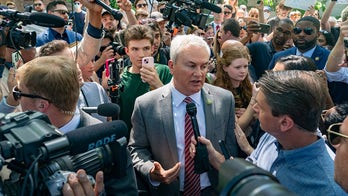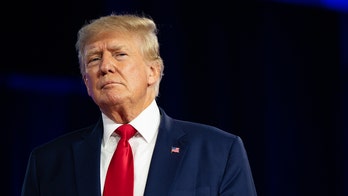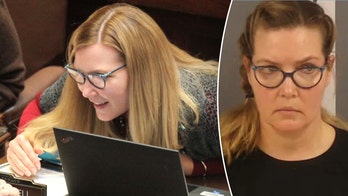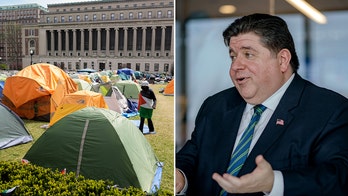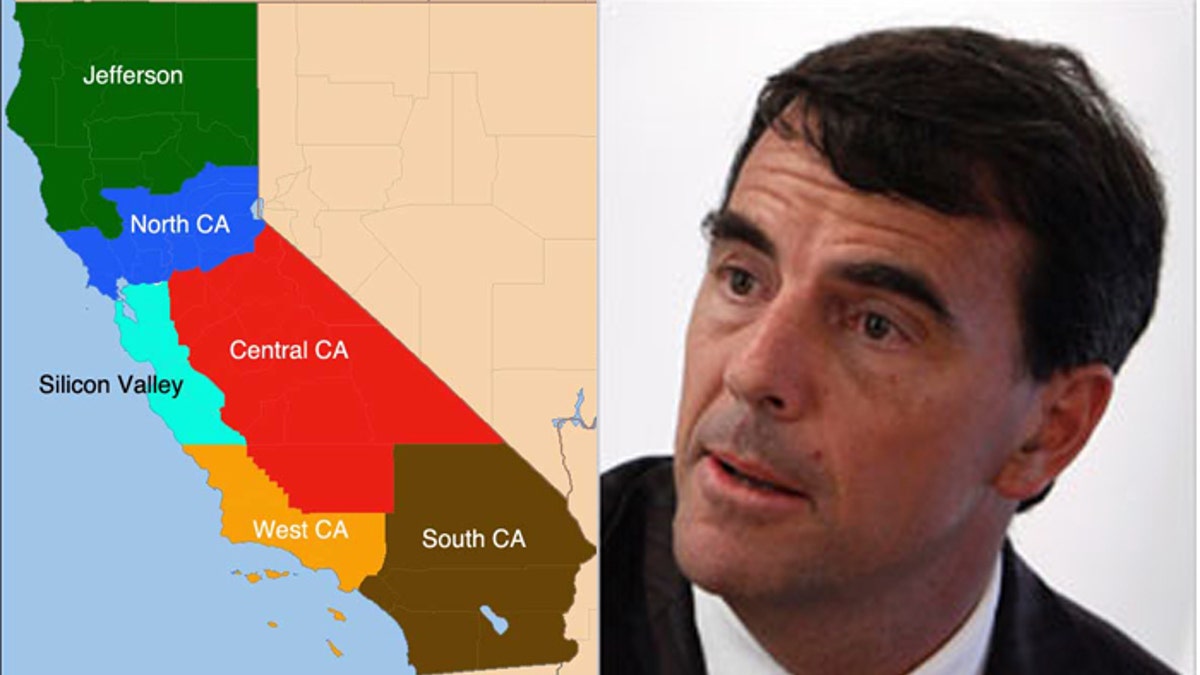
Investor Tim Draper believes six Californias is better than one. (Reuters)
A billionaire tech investor says he has enough backing to put on the ballot a plan to split California into six states.
Timothy Draper, a venture capitalist founder of a Silicon Valley-based venture capital firm that has invested in such tech companies as Twitter, HotMail, Skype and Tesla, told Reuters he has the 808,000 signatures needed on a petition to force the measure onto a public referendum in November 2016. Under the far-fetched plan, one state would be called "Silicon Valley" and would include the tech mecca, as well as San Francisco.
"California needs a reboot," Draper, who has spent $4.9 million of his own money on the effort, said in a press release. "Six Californias is our opportunity to solve the many problems we face today. ... Six states that are more representative and accountable. Six states that embrace innovation and strive to improve the lives of residents."
[pullquote]
Draper's group plans to submit the signatures today, according to a Tweet.
A state dubbed "Jefferson" would include the northernmost portion; "South California" would be comprised of San Diego and eastern Los Angeles while the rest of L.A. would be called "West California." A province called "North California" would be built around Sacramento, and "Central California" would be made up of the central valley farm region, including Tulare and Fresno counties.
Silicon Valley would become the nation's richest state, while Central California would become its poorest, according to the nonpartisan Legislative Analyst's Office.
Critics call the plan kooky and note that such ideas have been floated in the past and never gone anywhere. According to FOX40, there have been about 220 efforts to divide California. All have failed.
"This is a colossal and divisive waste of time, energy and money that will hurt the California brand,” said Steven Maviglio, a Democratic political strategist who formed the group OneCalifornia to fight Draper’s plan. "It has zero chance of passage. But what it does is scare investment away... at a time when the governor is leading us to an economic comeback.”
Draper and other supporters plan to file the signatures with California Secretary of State Debra Bowen on Tuesday.
"It’s important because it will help us create a more responsive, more innovative and more local government, and that ultimately will end up being better for all of Californians," said Roger Salazar, a spokesman for the campaign. "The idea ... is to create six states with responsive local governments -- states that are more representative and accountable to their constituents."
Draper's group says the division would create a more business-friendly environment, solve the state’s water issues and ease traffic congestion.
Earlier this year, Bowen gave the go-ahead for activists to start gathering signatures for the initiative. Their deadline for submitting them was July 18.
Perhaps the biggest obstacle facing Draper's six-state scheme is that even if approved, it would be subject to passage by Congress.
"He's got a pretty high bar to pass," Corey Cook, director of the University of San Francisco's Leo T. McCarthy Center for Public Service and the Common Good, told the San Jose Mercury News. "There'll be a general skepticism of how dividing the state would improve it."

